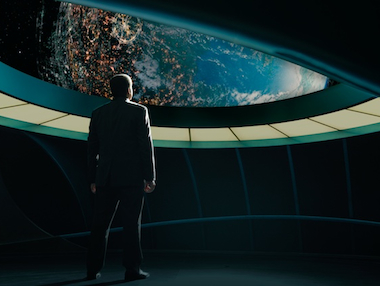Tag: PBS
PBS’s Kerger urges Annual Meeting audience to be bold amid change
The event kicked off Tuesday with its largest crowd in at least a decade.Koch protester takes stage at PBS meeting, gets handcuffed and shown out
PBS staff asked Current to stop photographing as Brant Olson was put against a wall and handcuffed.PBS plans digital video service as premium for station members
Public television stations are hoping that special access to a rich library of PBS programs will convince viewers to become members and ...PBS, PRX pick up Webby awards
Idea Channel, PRX Remix and Religion & Ethics Newsweekly are among the winners.PBS proposes video-on-demand service in FY15 budget
PBS’s fiscal year 2015 draft budget includes the launch of a Membership Video on Demand service that will generate revenue by drawing ...Online companion to PBS series shines spotlight on civic innovation
How We Got to Now, a fall PBS series charting the history of innovation, will accompany a stand-alone news and commentary website funded by ...PBS’s Sepulveda: Stations can do more to engage Latinos, broader communities
PBS stations need to share more information among themselves as they work to increase their community impact, PBS’s new senior v.p. of ...Tuesday roundup: Knight backs innovation site; Rockefeller receives journalists’ award
Plus: Tribeca panels become a WNYC offering.PBS, NPR compete for Webby Awards in multiple categories
Websites affiliated with PBS and NPR have been nominated for Webby Awards in more than 20 categories. PBS Video and NPR’s Responsive Design ...On new website, Aereo lays out argument for favorable court ruling
Startup Internet TV service Aereo has launched a website to make its case to the public in advance of a U.S. Supreme ...Professor cherry-picks pubTV archive for critique of education coverage
Occidental College professor Peter Dreier takes issue with PBS coverage of a 2010 education documentary, while advocating for a new doc being ...Thursday roundup: PBS promotes execs; Code Switch crowdsources poetry
• PBS has promoted two of its programming execs. Michael Kelley, formerly v.p. of strategy and business affairs, ascends to s.v.p., programming and ...Wednesday roundup: NPR ads respond to voices; Knight backs development efforts
• NPR introduced voice recognition–enabled ads this week on its smartphone app in an attempt to connect its nearly one million mobile ...PBS 2015 draft budget would raise station dues 2.5 percent
PBS’s fiscal 2015 draft budget contains a recommendation for a 2.5 percent increase in dues paid by member stations. The PBS Board, ...A new spin on Cosmos comes to commercial TV
When Carl Sagan's widow Ann Druyan couldn't reach an agreement with PBS over her remake of the iconic pubTV series, Fox rolled ...





